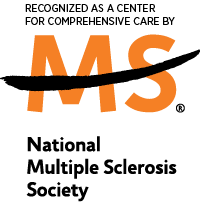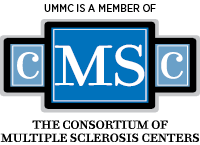Multiple Sclerosis Treatment

Management of MS is approached on three fronts: treatment of relapses, disease modification, and symptom management.
Multiple Sclerosis Relapse Management
A relapse is defined as new or worsening neurological symptoms that last longer than 24 hours. Relapses usually evolve over 1-7 days. Their intensity may peak for several weeks then lessen over weeks or even several months.
The usual treatment of a relapse is high-dose anti-inflammatory steroids given by mouth or intravenously. This is the same type of steroid used for allergic reactions, like with poison ivy.
Although there is little evidence that high-dose steroids have a long-term benefit in multiple sclerosis, they are believed to hasten recovery from relapse symptoms. Commonly, steroids are given intravenously sometimes over 1-2 hours for 3-5 consecutive days. There are oral steroids (i.e. prednisone or oral methylprednisolone) that can be taken instead of through IVs.
Exposure to excessive heat or a recent increase in activity may cause symptoms to worsen or return, and can cause people to feel like they are having a new relapse. Infections (and resulting fevers) can also make symptoms temporarily worse. These events, sometimes called pseudo-relapses, typically do not require treatment because leaving the source of heat or treating the infection will resolve the issue.
Disease-Modifying Medications for Multiple Sclerosis
Prior to 1993, there were no FDA-approved medications for the treatment of multiple sclerosis that could alter the natural course of the disease. Since that time, there have been many medications approved for multiple sclerosis. These medications have shown to reduce the chance of future relapses, MRI activity and disability worsening.
Injectable options:
- Interferon beta-1b: Betaseron®, Extavia®
- Glatiramer acetate: Copaxone®, Mylan®, Glatopa®
- Interferon beta-1a: Avonex®, Rebif®
- Peginterferon beta-1a: Plegridy®
- Ofatumumab: Kesimpta®
Oral options:
- Cladribine: Mavenclad®
- Fingolimod: Gilenya®
- Siponimod: Mayzent®
- Ozanimod: Zeposia®
- Dimethyl fumarate: Tecfidera®
- Diroximel fumarate: Vumerity®
- Monomethyl fumarate: Bafiertam®
- Teriflunomide: Aubagio®
Infusion options:
- Natalizumab: Tysabri®
- Alemtuzumab: Lemtrada®
- Ocrelizumab: Ocrevus®
- Mitoxantrone: Novantrone®
These options all have different results, delivery systems and side effects. It is important to discuss these options with your physician to make the best decision for each individual patient.
Vitamin D supplements can also have a disease-modifying effect. Vitamin D supplementation can reduce MRI activity in multiple sclerosis patients. Low vitamin D levels are associated with higher relapse rates. For these reasons, your neurologist will likely advise vitamin D supplements to complement your disease-modifying therapy choice.
Symptomatic Treatments for Multiple Sclerosis
The disease-modifying therapies can treat the disease itself, but they do not treat existing symptoms. Thankfully, there are numerous medications that can be prescribed for symptoms such as pain, spasticity, walking difficulties, fatigue, depression and other symptoms. You should work with your doctor to determine the most appropriate medications to alleviate your symptoms.
In addition to medications, there are numerous non-pharmaceutical approaches to help alleviate the symptoms of MS. These include:
- Physical, occupational, speech, and cognitive therapy and rehabilitation approached
- Acupuncture
- Yoga
- Meditation and relaxation techniques
- Talk therapy and support groups.
- Many of these approaches are available at UMMC and UM Rehabilitation & Orthopaedic Institute.


